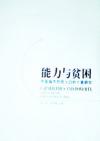
Zhang Xiaojun 张小军 and Pei Xiaomei 裴晓梅 (eds.)
Hong Kong Social Science Publishing House 香港社会科学出版社有限公司, 2007, 433 pages
Reviewed by Yiran LIU (PhD candidate, Sociology Department, Tsinghua University; HYI Visiting Fellow, 2011-2012)
During the transition period, China on the one hand saw rapid economic development, and on the other hand, suffered from increasing social inequality. The gap has been widening not only between rural and urban areas but within urban groups as well. In this book, Xiaojun Zhang, a professor of Sociology in Tsinghua University, collects studies of various vulnerable groups in urban China, revealing the real life situations of the urban poor and analyzing the underlying reasons that cause urban poverty.
Poverty is often discussed in terms of absolute deprivation and relative deprivation. Although the latter is often the main focus in Western societies, this book focuses on absolute deprivation because most of the population, especially the grassroots population, still suffers from absolute poverty in contemporary China.
All kinds of vulnerable groups (including children, women, the elderly, the disabled, etc.) and poverty-generating phenomena (including people being laid-off, failing to get medical insurance and pensions, having their houses demolished, etc.) which emerged during the transitional period are studied in the book. Using a detailed case-analysis method, Zhang shows the dynamic processes and mechanisms that cause poverty.
Zhang first reviews the existing literature on poverty. He then approaches the issue from three aspects, namely resources, institutions and culture, and discusses how these factors deprive people’s capacity for living and cause poverty.
The first kind of poverty is due to the scarcity of certain kinds of resources, including economic resources, information resources, power resources, etc. In other words, the allocation of resources becomes the key to understanding this kind of poverty. In this argument, poverty was much more than the lack of income. The poor do not have a voice in politics, are deprived of opportunities in economic activities, despised by other people and vulnerable to outside forces.
Besides resources, institutions to some extent account for the increase in China’s urban poverty. The social transition in China broke the continuity in many policy arenas and brought dozens of new policies which were not favorable to vulnerable groups, such as medical insurance, subsidies for demolition, compensation for laid-off workers etc. Some workers who agreed to accept very low wages in exchange for guaranteed pension and medical insurance when they grow old, are now being deprived of all guarantees and are laid off with only a very limited amount of money.
Culture exerts a subtle, but important, influence on poverty. Zhang argues that the effect of culture on the urban poor can be divided into “direct deprivation” (or visible deprivation) and “indirect deprivation” (or invisible deprivation). The former donates cultural discrimination, cultural suppression, etc.; for example, the children of migrant workers cannot attend high school in the cities. The latter indicates the seemingly fair mainstream cultural conventions that in fact exclude the poor. Cases can be seen from some migrants who are able to support themselves yet are still despised and ridiculed by other urban residents.
After discussing these three kinds of poverty, Zhang concludes that although these factors are closely linked to poverty, at a more profound level, it is the deprivation of people’s capacity caused by these factors that eventually produces poverty. In other words, poverty means the inability to obtain resources, deal with institutional change, and fight against cultural hegemony.
This book provides twelve concrete case studies which depict the process of poverty formation, for example the case of female worker retirees from state-owned enterprises who fail to receive a pension; the case of a petitioner whose house is torn down; the case of people excluded from the welfare system; etc. In organizing these cases in a sophisticated theoretical framework, Zhang provides us with a way to understand the ongoing urban poverty that has emerged in post-Mao China.
